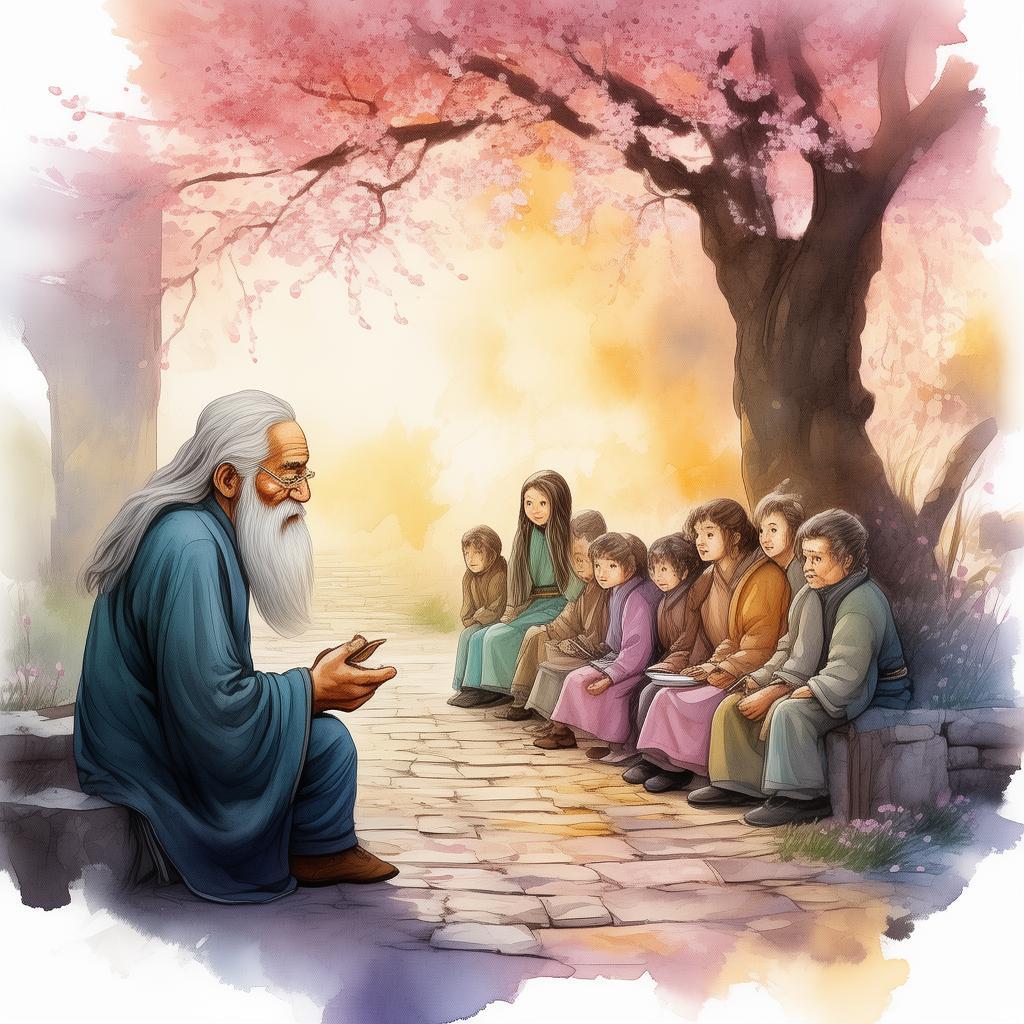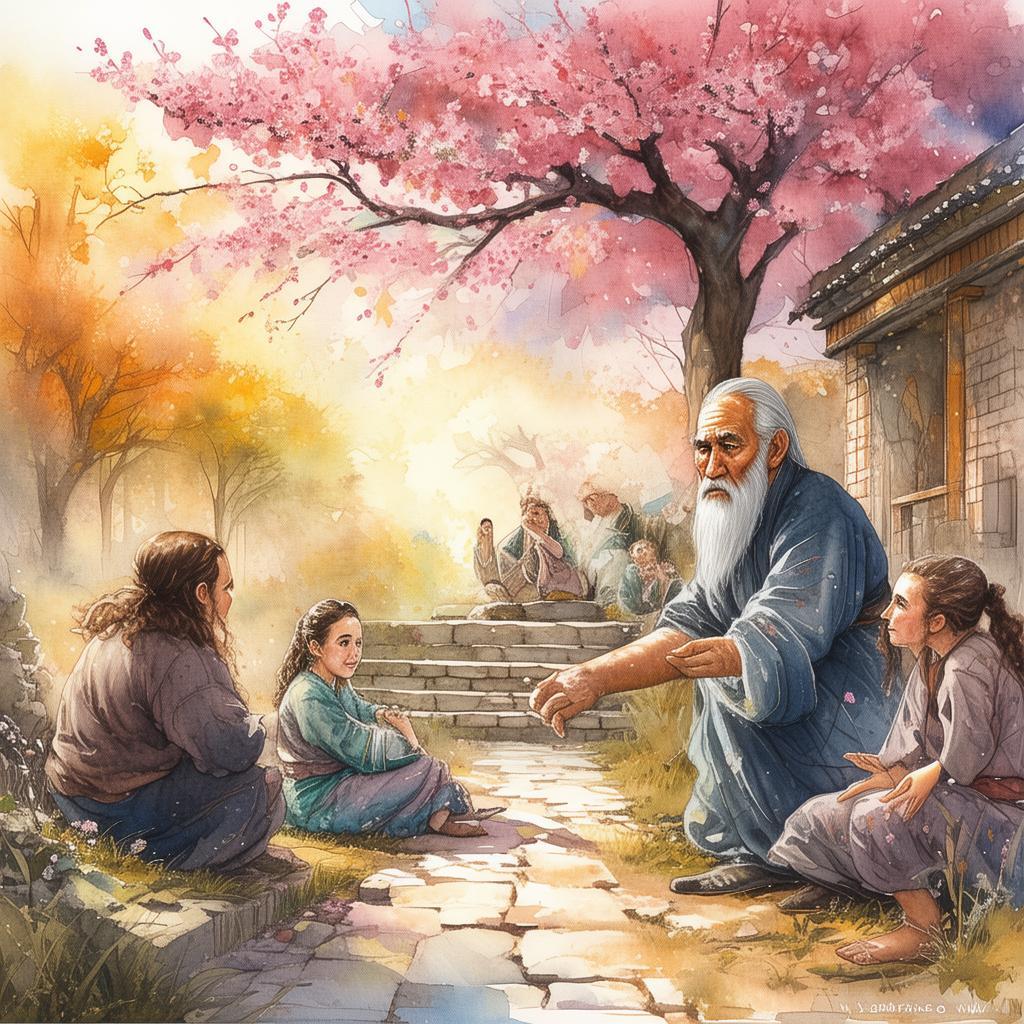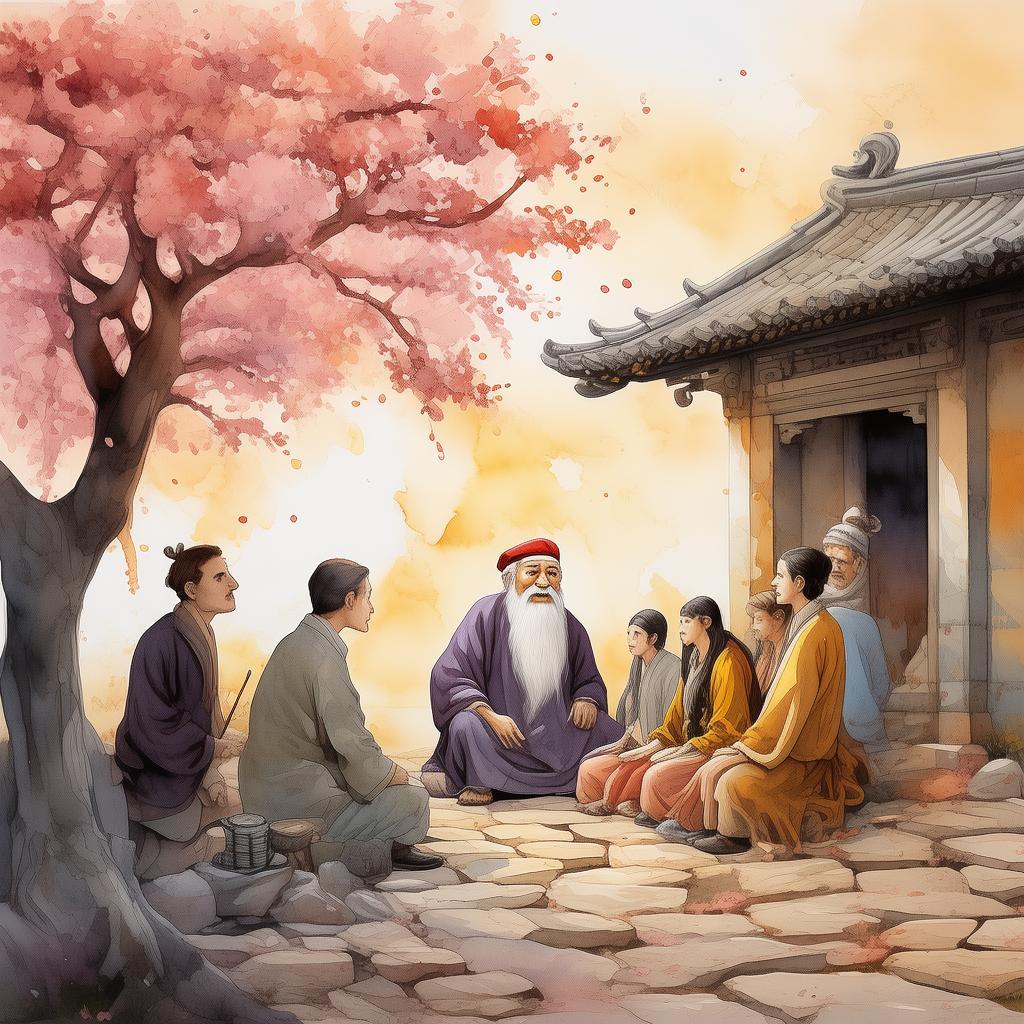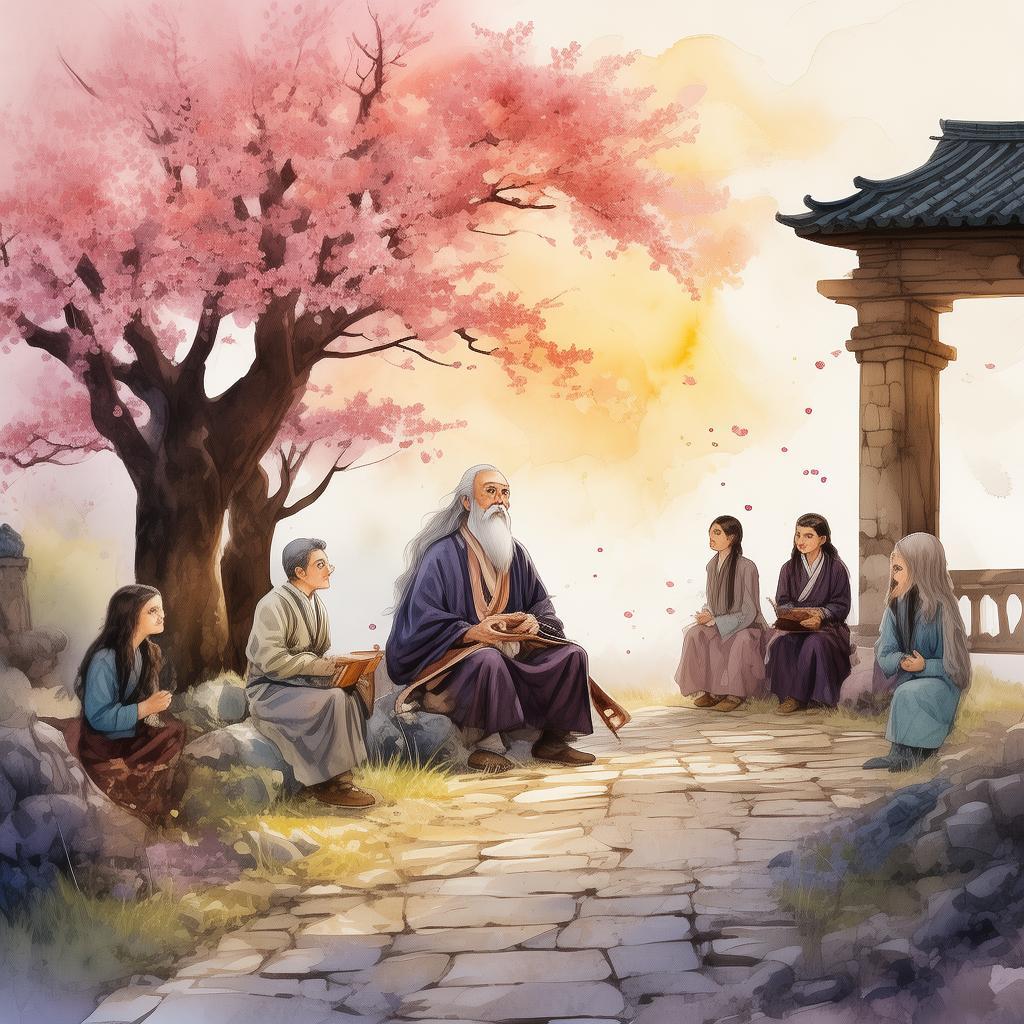Time-Traveling Quest: The Tale of the "Eagle-Eyed and Earthen-Eared" Scholar
In the bustling city of Beijing, amidst the towering skyscrapers and the endless hum of the metropolis, there was a quiet scholar named Li Ming. Known for his vast knowledge and sharp intellect, Li Ming was often sought after for his wisdom. But there was one saying that had always intrigued him—a saying that seemed to encapsulate the essence of ancient Chinese philosophy. It was the saying "Eagle-eyed and earthen-ear."
Li Ming spent countless nights pondering the meaning of this enigmatic phrase. Could it be a metaphor for discerning truth from deception? Perhaps it was a way to describe the ability to hear the faintest whispers of the earth. No matter how he tried to decipher it, the saying remained shrouded in mystery.
One evening, as the moon hung low in the sky, Li Ming's curiosity turned into a fervent desire. He needed to uncover the origins of this saying. He needed to see it in the context of its time. And so, he began to research, to delve into the annals of ancient texts, to seek out any clue that might lead him to the answer.
Days turned into weeks, and weeks into months, but Li Ming's quest remained fruitless. It was then that a friend, an eccentric inventor named Wang, suggested that perhaps the answer lay not in the pages of ancient books, but in the realm of the unknown. "Why not try time-travel?" Wang asked, his eyes twinkling with mischief.
Li Ming, intrigued but skeptical, decided to give it a shot. He visited Wang's lab, a labyrinth of half-finished projects and peculiar gadgets. Wang, a genius with a penchant for the impossible, had created a time-travel device—a device that, according to him, could transport a person back in time to any point in history.
With a mixture of trepidation and excitement, Li Ming climbed into the device. The moment the machine activated, he was enveloped in a blinding light, and then everything went black.
When Li Ming opened his eyes, he found himself in a bustling marketplace, surrounded by people dressed in ancient attire. He was no longer in the modern city of Beijing, but in the ancient Chinese capital of Chang'an. The year was 618 AD, and the Tang Dynasty was in full bloom.
Li Ming's first impression was one of awe. The market was a cacophony of sounds, sights, and smells. Merchants haggled over goods, while artisans honed their crafts. It was a world so different from his own that it felt like stepping into another dimension.
Li Ming began to explore, searching for any sign of the ancient saying. He visited libraries, temples, and even royal courts, but he found no mention of "Eagle-eyed and earthen-ear." Desperation began to set in, but Li Ming refused to give up.
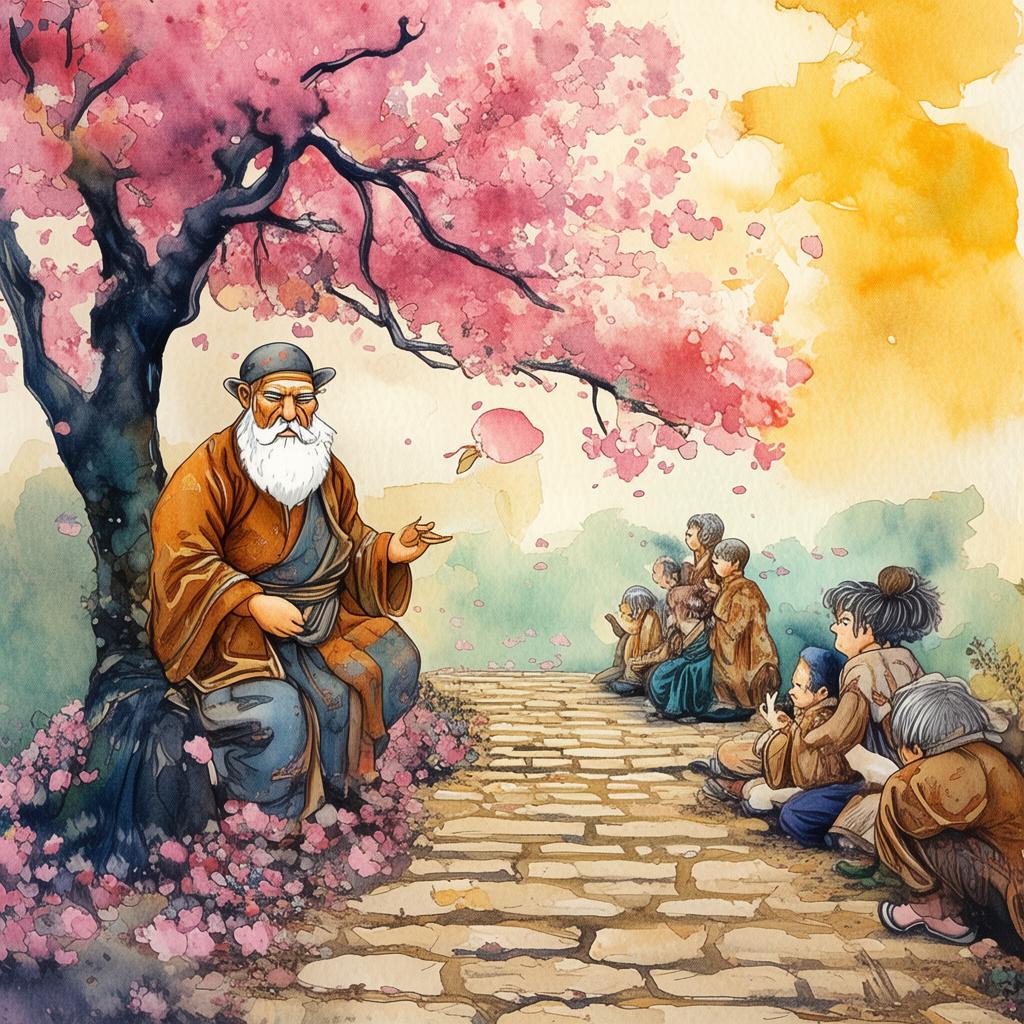
One day, as he wandered through the streets, Li Ming noticed a small, elderly man sitting by the side of the road, his eyes darting about as if searching for something. The man's gaze was sharp, piercing through the chaos of the market. Li Ming approached him, intrigued by the man's demeanor.
"Excuse me, sir," Li Ming said, bowing slightly. "I am a scholar from the future, and I am searching for a saying that has eluded me for years. It is called 'Eagle-eyed and earthen-ear.' Do you know what it means?"
The man looked up, his eyes narrowing as if trying to read Li Ming's soul. "Eagle-eyed and earthen-ear," he repeated. "Ah, you seek wisdom, do you? Then you must listen well."
Li Ming listened intently as the man began to speak. "In ancient times, there was a wise man named Zhang. He was known for his sharp eyes and keen ears. With his eagle eyes, he could see through the lies and deceit of others. With his earthen ears, he could hear the whispers of the earth, the secrets of the past and the future."
Li Ming's heart raced with excitement. This was it! The answer he had been searching for. "So, the saying 'Eagle-eyed and earthen-ear' means seeing through deception and listening to the earth's whispers?"
The man nodded. "Exactly. It is a reminder that true wisdom comes from seeing and hearing beyond the surface of things. It is a call to seek the truth, to listen to the voice of the earth, and to look beyond the eyes of the world."
Li Ming thanked the man and set off to find Wang, eager to share his discovery. As he traveled back to the future, he couldn't help but feel a sense of fulfillment. He had not only found the meaning of the ancient saying but had also learned a valuable lesson about wisdom.
Upon his return, Li Ming shared his experience with Wang and the world. The saying "Eagle-eyed and earthen-ear" became a symbol of wisdom, a reminder to seek truth and listen to the whispers of the earth.
And so, Li Ming's quest for the ancient saying had come to an end, but the wisdom he had gained would live on, guiding generations to come.
✨ Original Statement ✨
All articles published on this website (including but not limited to text, images, videos, and other content) are original or authorized for reposting and are protected by relevant laws. Without the explicit written permission of this website, no individual or organization may copy, modify, repost, or use the content for commercial purposes.
If you need to quote or cooperate, please contact this site for authorization. We reserve the right to pursue legal responsibility for any unauthorized use.
Hereby declared.


